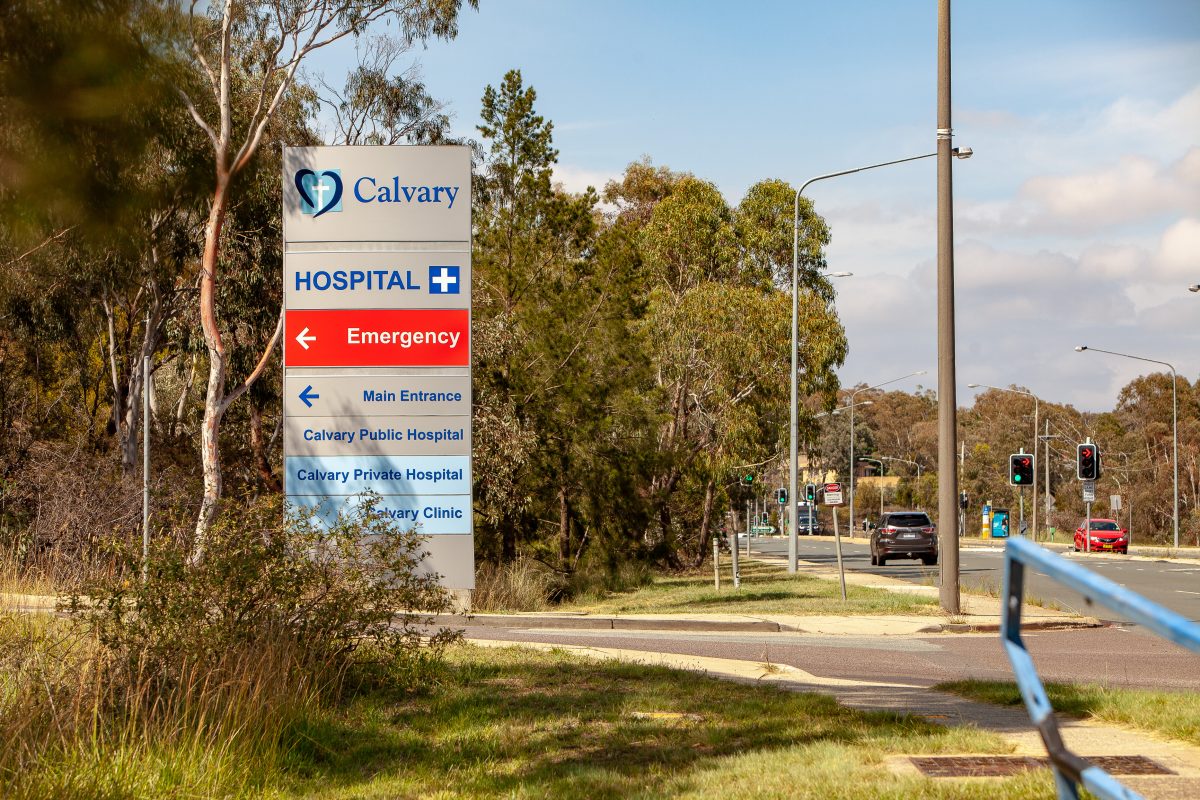
An unnamed woman has detailed her fear of being taken to Calvary Hospital after accessing an abortion through Marie Stopes and being left in extreme pain, requiring hospitalisation. Photo: Region.
Abortion in the ACT has been decriminalised since 2002. Two decades later, in August of this year, medical and surgical abortions were made free.
The government also announced women could access free long-lasting contraception at the same time, if desired.
Until August, the most significant barrier to accessing abortion in the Territory was cost, although some GPs said abortion accessibility could still be improved.
A Legislative Assembly committee is currently inquiring into access to abortion services in the Territory following the overturning of Roe v Wade in the United States.
Archbishop of Canberra and Goulburn Christopher Prowse told the committee on Friday (28 October) not enough support is provided to women who find themselves pregnant to make an “informed decision” about what they do.
“[We] are of the view that the ACT is seeking to provide ready access to those who seek to terminate a pregnancy but is offering very little support and few options to those who seek to continue a pregnancy,” he told the committee.
“We hold that termination for those who choose it should be safe, legal and rare.”
Health Minister Rachel Stephen-Smith said a range of support services are available to women, including ones funded by the ACT and Commonwealth government.
Others questioned religion’s role in the provision of healthcare services – which could include abortion aftercare in some cases – and in the debate itself.
Witness Greg Tannahill detailed his experience supporting a woman going through a termination.
The woman, who wished to remain anonymous, had decided to have a termination as she feared for her mental health if she carried the baby.
After receiving the termination, this woman was in immense pain and experiencing complications.
As they live on the north side of Canberra, they went to Calvary Public Hospital in an ambulance.
The woman became highly distressed upon arriving at the hospital as she feared the hospital and its staff might not support her decision to have terminated her pregnancy and would not give her the medical care required.
In the end, those fears did not eventuate and the woman received quality care.
Nonetheless, Mr Tannahill questioned whether it was appropriate for a major public hospital in the Territory to be operated by a Catholic organisation – the Little Company of Mary.
“Abortion has been legal in the ACT for 20 years. It’s settled law and I think it’s inappropriate for a hospital to be run by an organisation that fundamentally doesn’t agree with it,” he said.
In a perfect world, he said, the government would operate that hospital.
In a later hearing, Ms Stephen-Smith was questioned about this.
She said discussions were continuing with Calvary about how support and conversations were provided to patients at Calvary Hospital.
“Given Canberra Hospital also doesn’t provide surgical abortion services specifically, I don’t think there’s that much disconnect,” Ms Stephen-Smith said.
“But for things like support and advice … or even for people who have experienced sexual assault or rape and then can’t access the morning-after pill at Calvary Hospital … that is raised regularly with us.”
A group of local doctors – Canberra Deep End GPs – said some barriers still exist when accessing a safe abortion easily in the Territory.
This included the fact there are limited numbers of medical abortion prescribers in the Territory and that no referral pathways are in place for GPs to help their clients get treatment at Marie Stopes International (MSI).
The fact abortions can locally only be provided until 16 weeks was also a problem, Dr Melanie Dorrington told the committee hearing.
They also called for better provision of information as it is currently difficult to determine which GPs provided the service.
Calls for more services – including culturally appropriate ones – and better information were supported by the ACT Council of Social Service (ACTCOSS).
An earlier version of this article incorrectly stated the ACT Right to Life Association supported the position of the Archbishop. The group does not believe abortion should be legal under any circumstance.















